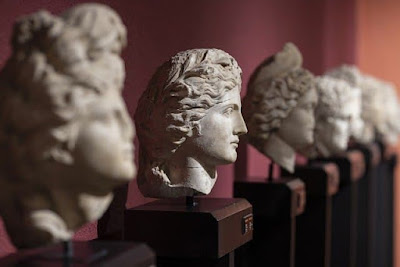For at least the last few years, we have been hearing quite a bit about one's right to believe certain things. This is especially true with regard to religious beliefs and one's right to them. I'm not sure why this is such a popular subject. It is almost as if many people are convinced that this right was somehow in jeopardy. But it is not in any jeopardy, none whatsoever. Nobody can take away your right to believe whatever you want. And as far as I can tell, it hasn't occurred to anybody to try to do so.
We all have the right to believe whatever we want, no matter how wrong we may be. Beliefs, just like all our other thoughts, are our own. They are private unless we decide to make them public. That means nobody else can even know what it is that we believe unless we choose to express it. Hold whatever religious beliefs you favor. If you don't tell anybody about them, they'd never think to try to change your mind.
We do not have the right to express our beliefs without consequence, and we certainly do not have the right to act upon our beliefs without consequence. When someone wears a "god hates fags" t-shirt to a job interview, he or she is unlikely to get the job. If I list "atheist activist" under special skills on my resume, I probably won't get the job either. One could argue that these would be issues of free expression, and one might be right. Even so, the right to express one's beliefs (i.e., free speech) is different from the right to believe what one wants. When someone expresses his or her beliefs by shouting racial slurs at persons of color through a megaphone, he or she may face some negative consequences for his or her behavior. Again, these consequences are about the expression of one's beliefs or how one acts based on one's beliefs and not the beliefs themselves.
I suspect that the reason we hear so much about one's right to one's beliefs is that some people - especially some religious people - refuse to distinguish between the private beliefs that occupy their thoughts and what they do or say based on their private beliefs. That is, some people equate holding a belief with expressing it or acting upon it. This is simply wrong. One's private thoughts cannot be restricted; the right to believe is never in jeopardy.
We all have the right to believe whatever we want. We can believe things that have no connection to reality whatsoever if we want (e.g., creationism). While we cannot reasonably expect to be able to express these beliefs in some contexts or act upon them without ever experiencing consequences we consider undesirable, we remain free to believe what we want. We just need to remember that believing something, no matter how strongly we may believe it, does not make it true. We can always be wrong.
Many religious believers are fond of claiming that atheists are infringing upon their right to believe, but this isn't the case. Even if we wished we could, we can't. Like us, religious believers are free to believe what they want. Those of us who still care about the separation of church and state may want these religious believers to stop trying to impose their religious beliefs on the rest of us, but that is very different than restricting their right to believe.
This is a revised version of a post that first appeared here in 2014. It was updated and expanded after the author realized, much to his dismay, that many people still seem to be confused about this.
